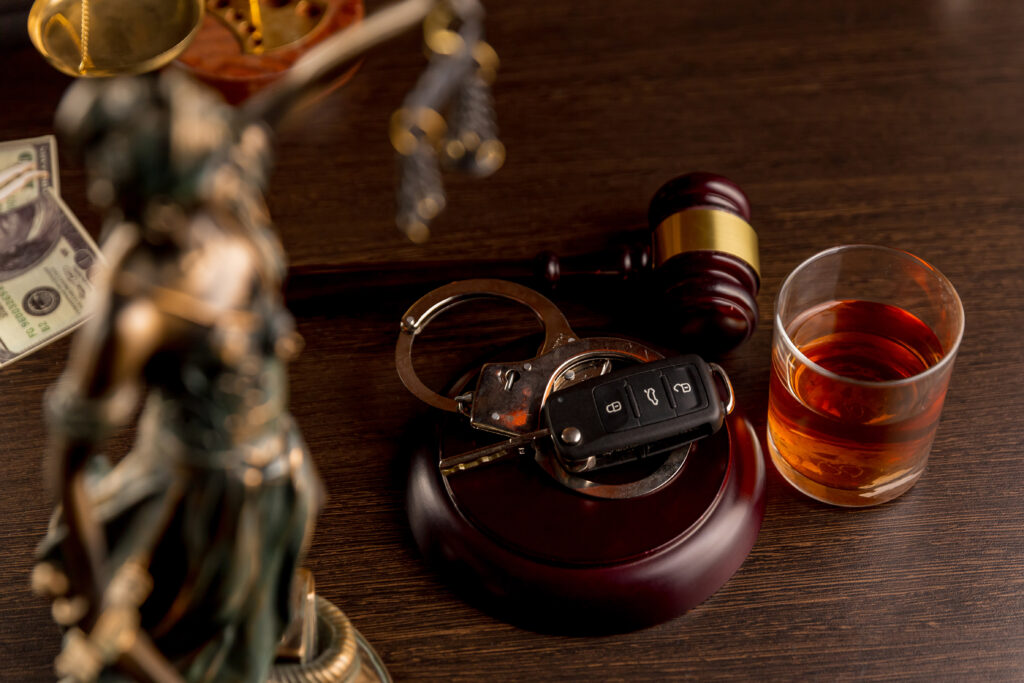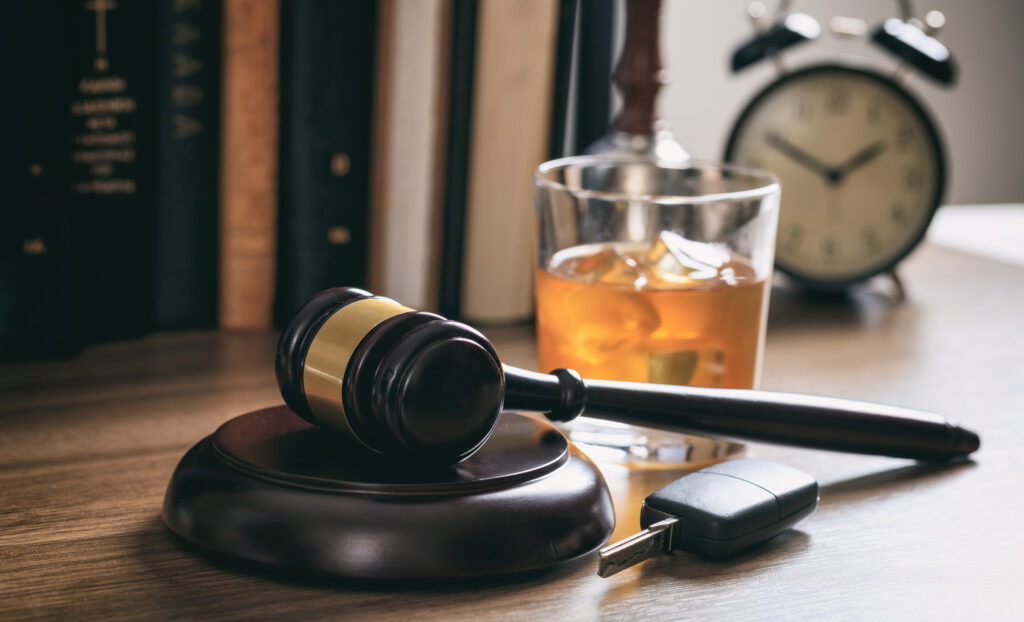If you or a loved one has a DUI conviction in South Carolina, you may wonder about the long-term consequences of this offense. A DUI conviction can have far-reaching effects on your life, from your driving privileges and insurance rates to your employment opportunities and personal relationships.
But how long does a DUI stay on your record in South Carolina, and what can you do to mitigate the potential impacts on your life and future? Read on to learn more about the topic. For specific advice regarding your situation, contact an experienced Greenville DUI defense attorney near you to discuss your case.
A DUI Conviction Stays on Your South Carolina Record Forever

In South Carolina, a DUI conviction will remain on your criminal record permanently. South Carolina law considers a DUI to be a serious offense. Therefore, the state has chosen to make DUI convictions a permanent part of an individual's criminal record. This law intends to deter individuals from driving under the influence and hold offenders accountable for their actions.
Unfortunately, anyone who conducts a background check on you, including potential employers, landlords, and educational institutions, will see this conviction. However, the conviction will remain on your traffic record for 10 years.
Can You Expunge a DUI In South Carolina?
Unfortunately, you cannot expunge a DUI conviction in South Carolina in most cases. The state's expungement laws are very strict, and they do not allow for the removal of DUI convictions from an individual's criminal record.
The law reserves expungement reserved for minor offenses or cases where the court dismissed the charges or found the individual not guilty.
How Long Will My DUI Conviction Affect My Insurance Rates?
A DUI conviction can have a significant impact on your car insurance rates for several years. Most insurance companies will consider you a high-risk driver following a DUI, and as a result, your premiums may increase substantially.
The exact length of time that your rates will increase depends on your insurance provider and your driving record, but you can expect to pay higher premiums for at least three to five years following your conviction.
Additionally, if you have more than one DUI conviction, you may not find insurance coverage at all. Or, you may have to purchase costly SR-22 insurance, a special type of insurance for those convicted of DUI offenses.
How Is a Prior DUI Conviction Going to Affect Me?
A DUI conviction can affect your life in numerous ways, both in the short term and the long term. Some of the potential consequences include:
Short-term consequences following a DUI conviction:
- Loss of driving privileges: Your driver's license may be suspended for a period of time, depending on your case.
- Fines and court costs: You will be required to pay various fines and court fees associated with your DUI conviction.
- Jail time: Depending on the severity of your offense and whether you have any prior DUI convictions, you may face a mandatory jail sentence.
- Probation: You may receive probation, which requires you to comply with certain conditions, such as attending substance abuse treatment or installing an ignition interlock device on your vehicle.
Up to 10 Years following the DUI conviction:
- Employment difficulties: A DUI conviction on your record may make it more difficult to find employment, especially in fields that require driving or positions that involve working with children or vulnerable populations.
- Housing challenges: Some landlords may not rent to individuals with a DUI conviction on their record.
- Higher insurance rates: As mentioned earlier, your car insurance premiums may remain elevated for several years following your conviction.
- Professional license restrictions: If you hold a professional license (such as a medical, legal, or teaching license), a DUI conviction may lead to disciplinary action or even the loss of your license.
Long-term impacts of a DUI conviction:

- Permanent criminal record: Your DUI conviction will remain on your criminal record indefinitely, which can have long-lasting consequences for your personal and professional life.
- Repeat offenses: If you are convicted of another DUI in the future, the penalties will be more severe due to your prior conviction.
- Personal relationships: A DUI conviction can strain personal relationships and lead to feelings of shame, guilt, or embarrassment.
Can a DUI Prevent You from Having a Commercial Driver's License in South Carolina?
Yes, a DUI conviction can prevent you from obtaining or maintaining a commercial driver's license (CDL) in South Carolina.
If you are convicted of a DUI while holding a CDL, the state will suspend your CDL for a period of time, even if the offense occurred in a non-commercial vehicle. If you are convicted of a second DUI offense, you may face a lifetime disqualification from holding a CDL.
What Happens if I Have a DUI Conviction in SC and Move to Another State?
If you have a DUI conviction in South Carolina and move to another state, the conviction will still appear on your criminal record and may have an impact on your life in your new state of residence.
Here's what you need to know:
- DUI convictions are part of your national criminal record: Even though your DUI conviction occurred in South Carolina, the state is a member of the Interstate Driver’s License Compact. Your conviction will be visible on your criminal record, which law enforcement agencies, employers, and licensing boards in other states can access.
- Driver's license transfer: When you move to a new state and attempt to transfer your driver's license, the new state will typically review your driving record from your previous state. If your South Carolina driver's license is suspended or revoked due to a DUI conviction, you may face challenges in obtaining a license in your new state until you have resolved the issue with the South Carolina DMV.
- Repeat offenses: If you are convicted of another DUI in your new state, the court may consider your prior DUI conviction from South Carolina when determining your sentence. This could lead to more severe penalties, as many states have harsher punishments for repeat offenders.
- Employment and housing: Just as in South Carolina, a DUI conviction on your criminal record may affect your ability to secure employment or housing in your new state, particularly if the position involves driving or if the employer or landlord conducts background checks.
- State-specific laws: Some states have laws that specifically address out-of-state DUI convictions. For example, certain states may require you to complete additional drug and alcohol education or treatment programs if you have a prior DUI conviction, even if it occurred in another state.
It's important to note that while moving to a new state may provide a fresh start in some aspects of your life, it does not erase your criminal record or the consequences of your DUI conviction.
If you plan to move to another state and have a DUI conviction in South Carolina, consult an attorney who can explain the impact of your conviction in your new state of residence.
What Are My Options if I Have a DUI Conviction on My Record?
While you cannot expunge a DUI conviction in South Carolina, you can mitigate the impact of the conviction on your life:
- Complete all court-ordered requirements: Make sure to fulfill all of the conditions of your sentence, such as attending substance abuse treatment, paying fines, and completing community service.
- Maintain a clean driving record: After your DUI conviction, avoid any further traffic violations or criminal offenses. A clean record following your DUI can demonstrate to employers, landlords, and others that you learned from your mistake and are committed to being a responsible citizen.
- Be honest and proactive: When applying for jobs or housing, be upfront about your DUI conviction and be prepared to explain the steps you have taken to address the issue and prevent future offenses.
- Seek legal guidance: An experienced DUI attorney can explain your rights and explore any available options for minimizing the impact of your conviction.
Depending on the circumstances of your case, your attorney may be able to have the prosecution lower your DUI charges to a less severe reckless driving charge. You’ll face lesser legal consequences.
Furthermore, your attorney may help you seal your DUI conviction after three years under certain circumstances. Speak with an attorney right away to discuss your options.
How a Lawyer Can Help You Address a DUI On Your Record

While you may not erase a DUI conviction from your record, a lawyer can provide valuable guidance and support to help you move forward with your life.
Some ways an attorney can help include:
- Review your case and explain your legal options
- Help you understand the potential consequences of your conviction and develop a plan to mitigate them
- Assist you in completing court-ordered requirements and maintaining compliance with your sentence
- Provide guidance on how to address your DUI conviction when applying for jobs, housing, or professional licenses
- Represent you in court if you face any subsequent criminal charges or if you have the opportunity to seek a sentence modification
Get Help From an Experienced DUI Defense Lawyer
Dealing with a DUI conviction in South Carolina can be challenging, but the experienced attorneys at Fedalei & Reid Law, LLC are here to help.
Contact us today for your free consultation and learn how we can assist you in navigating the impact of a DUI conviction on your life and mitigate its effects as much as possible.
